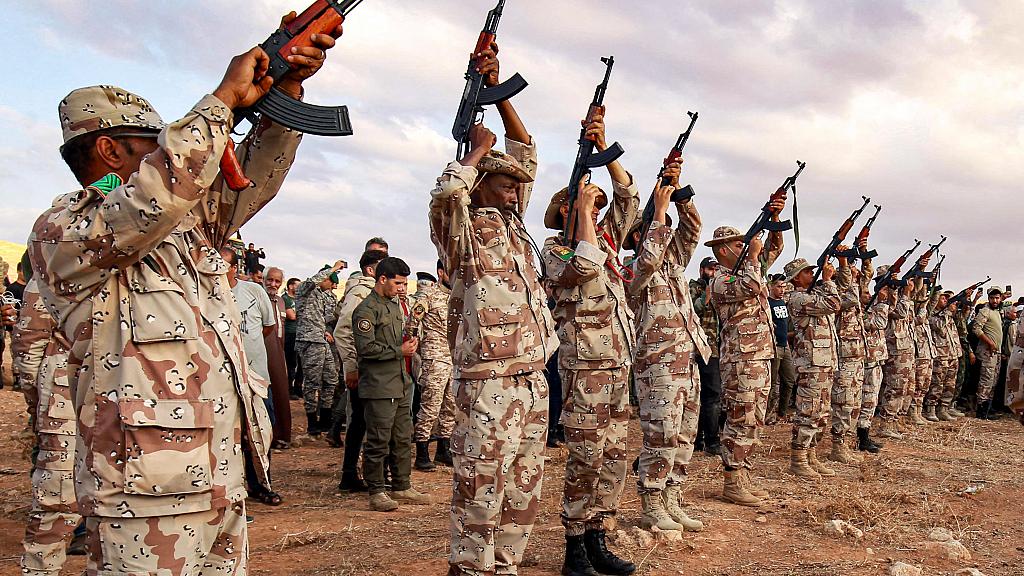The International Criminal Court (ICC) has issued a warning to all foreign fighters and mercenaries currently present in Libya that they could likely face prosecution for the war crimes and human rights violations they commit on Libyan territory. The ICC also demanded that they stop using detention centers in Libya for crimes such as murder, torture, sexual and gender-based violence, forced and arbitrary detention, and disappearances.
In a statement released yesterday, chief prosecutor of the ICC, Fatou Bensouda, said that “the office has received concerning information about the activities of mercenaries and foreign fighters in Libya. Crimes committed by mercenaries and foreign fighters on Libyan territory may fall under the jurisdiction of the court, no matter the nationality of the persons involved.” The statement went on to add that the ICC has credible information about serious crimes committed by foreign fighters in both official and unofficial detention facilities around the country.
The ICC’s warning comes just days after the United Nations Secretary-General, Antonio Guterres, in a report to the UN Security Council, revealed that foreign fighters continue to be present and active in Libya in blatant violation of the ceasefire agreement that the warring parties had reached in October last year. He had also red flagged violations occurring against the UN’s arms embargo, with supplies of lethal arms and ammunition which are contributing to the continuation and even escalation of the conflict. He demanded that “bringing one of the world’s largest uncontrolled stocks of arms and ammunition under state control is vital.”
According to UN data from December 2020, there are at least 20,000 foreign fighters in Libya, a majority of whom are from Sudan, Chad, Syria, Turkey and Russia. Unofficial sources however say that the number is easily more than 20,000, with 24,000 Syrians and Sudanese fighters alone surpassing the estimated UN figure. The UN says that about 8,850 people are under illegal detention in the 28 official Libyan prisons without any due process followed to arrest them. Another 10,000 people, including women and children, are being held in detention centers under the control of armed factions, according to diplomats.
The International Organization of Migration’s recent report has revealed that there are 571,000 migrants and refugees currently in Libya. Guterres has expressed concern about these migrants and refugees also being the victims of human rights violations such as illegal detention. Guterres urged the Libyan authorities to take steps to release the migrants and refugees from the country’s detention centers on an “urgent basis,” adding that there are an estimated 4,300 migrants and refugees currently being detained inside Libya. Chief prosecutor Bensouda in her statement yesterday seconded the UN chief’s appeal, saying “I urge all parties to the conflict in Libya to immediately put an end to the use of detention facilities to mistreat and commit crimes against civilians.”
Libya has been gripped by intense fighting and bloodshed since the NATO-led military intervention led to the overthrow of longtime Libyan leader Muammar Gaddafi in 2011. Subsequently, the country descended into a civil war between warring sides, leading to the country being divided into two spheres of control — one in the Libyan capital Tripoli with the formation of a UN-backed government and the second led by the rebel Libyan army general Khalifa Haftar who was supported by the House of Representatives based in the country’s East. Both sides were backed by powerful foreign powers such as Turkey, Russia, United Arab Emirates and Egypt.
After years of violence and loss of life and livelihood, along with massive civilian casualties and destruction, the two main rival parties to the conflict along with many smaller tribal and political factions reached a ceasefire agreement. The talks were hosted by the United Nations Support Mission in Libya which stipulated the formation of a Government of National Unity for the period leading up to national elections slated to be held on December 24 this year. The agreement also asked all the parties and factions to facilitate the removal of all foreign fighters and mercenaries within 90 days, a condition yet to be fulfilled.





